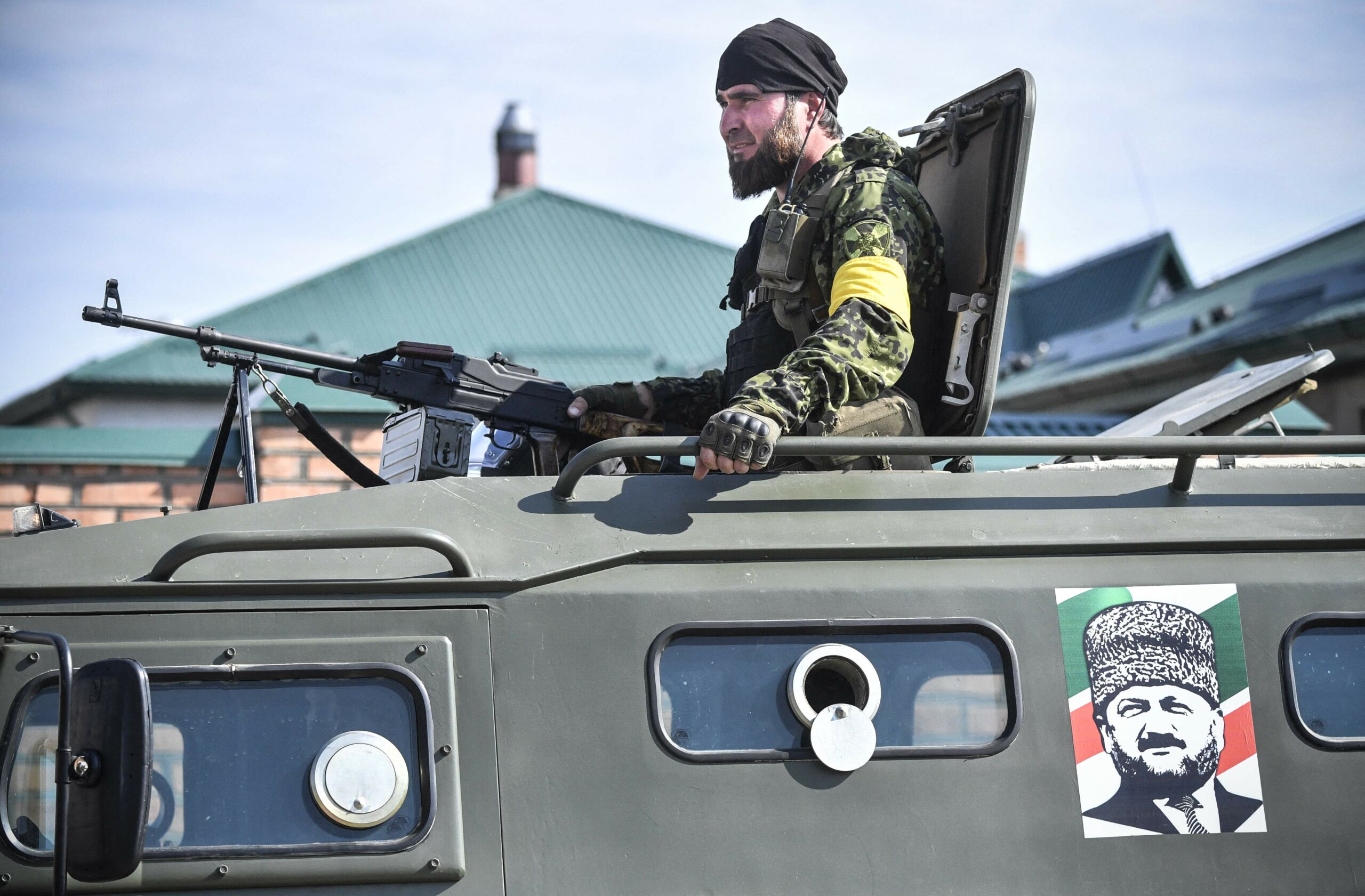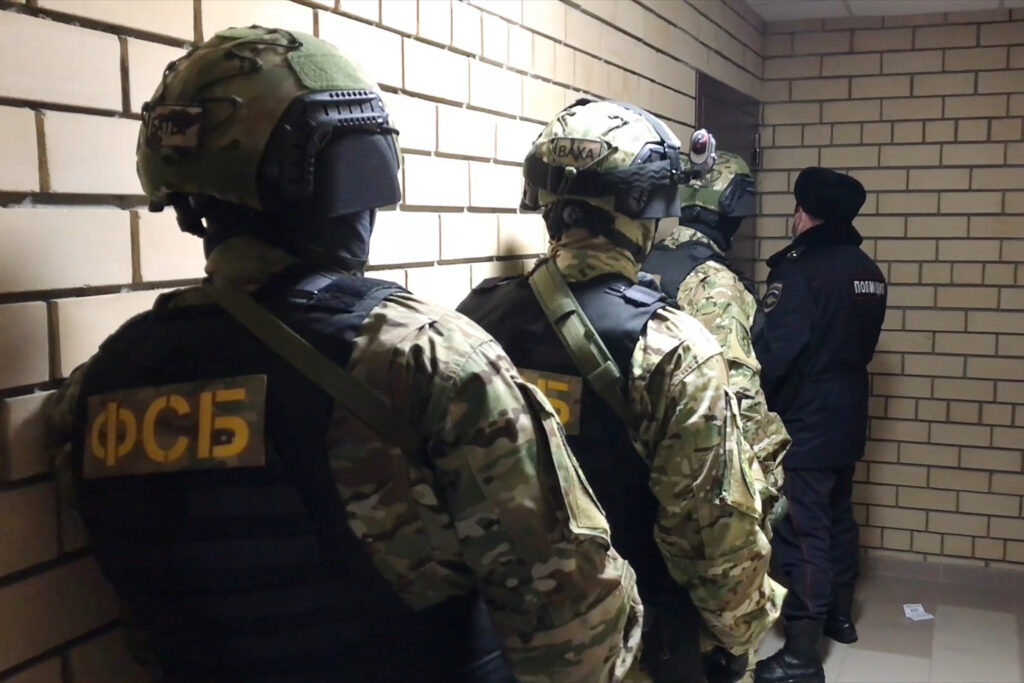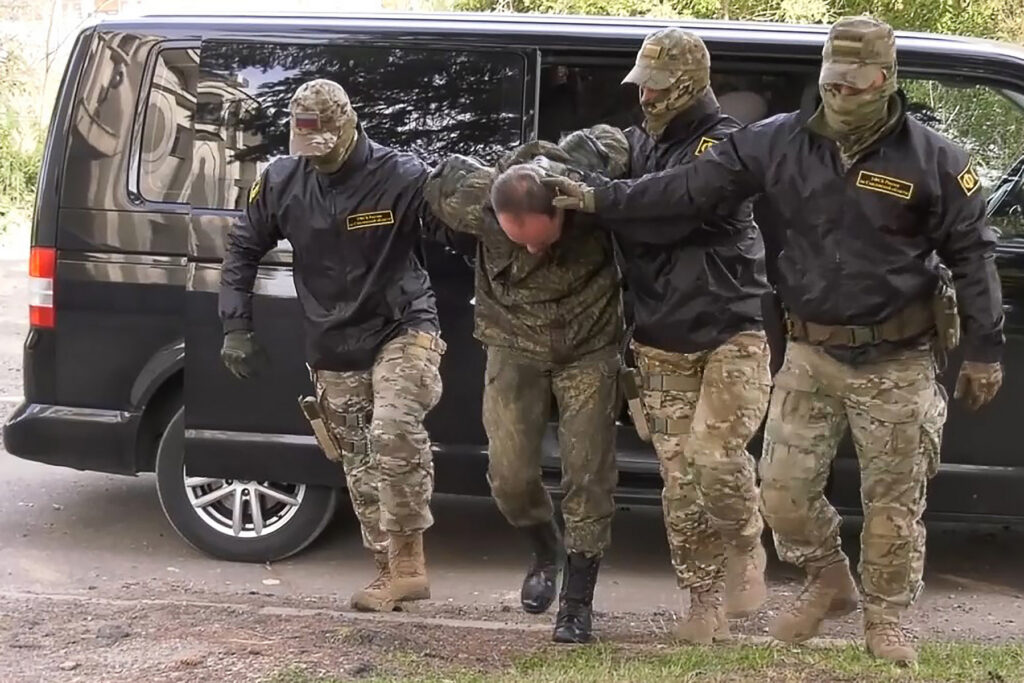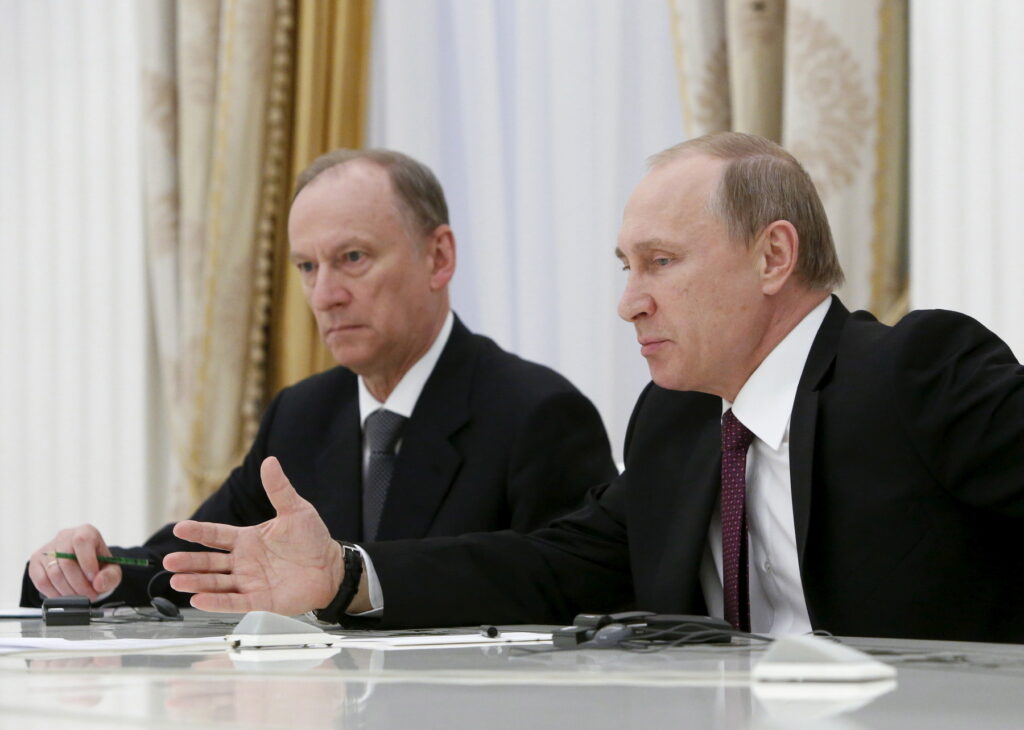Roughly once a week, Chechen governor Ramzan Kadyrov announces to more than three million Telegram followers that a new deployment of volunteer fighters has departed for the front in Ukraine. These soldiers form part of the Akhmat Group commanded by Apti Alaudinov, and they undergo training at Gudermes’ Russian Spetsnaz University (RSU), located roughly thirty kilometers outside Grozny, the Chechen capital.
Prior to Russia’s full-scale invasion of Ukraine, the RSU already added prestige to the Kadyrov regime through its contribution to the kadyrovtsy‘s reputation as an elite counterterrorism force, as well as through its central role in his military paradiplomacy. After over a year of war, the University’s role has expanded and transformed. It now serves as the foundation of Chechnya’s contribution to the war effort, and it is a cornerstone in Kadyrov’s attempt to revise Chechnya’s status in national (rossiiskii) identity and a key locale for building his federal profile.
History of the RSU
The Russian Spetsnaz University opened in the summer of 2019, but the idea behind it was allegedly formed by the Chechen governor as early as 2013. He first discussed plans to build the RSU in 2016. Other reports attribute the project to being the brainchild of Daniil Martynov, a former member of the FSB’s elite «Alfa» group and ex-advisor on siloviki to Kadyrov. Martynov, now serving as Advisor and Deputy Head at the Ministry of Emergency Situations, is still listed as the head of the team of instructors at the RSU. Contrary to how the RSU portrays itself, it is a private entity and legally remains just a «sports and shooting club,» distinct from any federal security service, and thus official spetsnaz. Such contrast between the legal classification and effective usage of the RSU is logical. This is because the training facility is a prestige project for Kadyrov, and he would not want to potentially undermine his authority over the institute by placing it within official security structures.
The past training capabilities of the RSU are unclear because it was not consistently training new forces, much less attempting to form new elite units from scratch. They claim to offer programs for civilians, private security companies, or «special» programs, presumably for international counterterrorism police forces. Even the current wartime training schedule is questionable. Claims of training two or three hundred soldiers every two weeks are tenuous. Not only do the numbers seem high and the training stunningly fast, it is also healthy to take with a grain of salt almost any Chechen regime statistics; there has long been a reputation-reality mismatch within the kadyrovtsy.
The RSU has historically added prestige to the Chechen government in two ways. First, by frequently serving as the training ground for the kadyrovtsy’s «elite» counterterrorism units, such as the notorious Akhmat Kadyrov Police Regiment, which reportedly committed extrajudicial executions and torture during Chechnya’s 2017 LGBTQ purges. This facility allows it to thus launder its reputation domestically; it also enables the laundering of this reputation abroad. The RSU has played a key role in the military aspect of Kadyrov’s paradiplomacy, particularly liaising with governmental security services in the Gulf States and elsewhere in the Middle East. In this regard, it has fallen short of Kadyrov’s initial (and unrealistic) goals for the facility, which he expected to attract instructors and students from around the globe. The limited capability to fulfill his ambitions in this endeavor should not be surprising, as the Chechen governor was forced to consign his international outreach to the regions with which he was already engaging. Overall, the RSU had not provided the Chechen governor with as much prestige he had clearly desired it would grant him.
Akhmat Group
Deployments for the Akhmat Group’s ranks are sent off quite vocally. This was not the case in the opening months of the war. In fact, it is quite unclear when the first contingent of troops from RSU were sent to Ukraine. Kadyrov claimed that they were training «from day one,» meaning that, accounting for the two weeks of training time, the first group should have deployed around March 10. There were no indications of any deployments at all until a week later. The Chechen governor announced on March 17 that the commander of the Akhmat Group, Apti Alaudinov, had embarked for the front with 1000 volunteers. No media was posted by any officials, despite the Kadyrov regime’s proclivity for social media and the fact that they have posted media of every deployment since. It was not until a week later, however, that the first video of a group deploying emerged. Even from such early dates, it was clear that there was a discrepancy between how many Akhmat Group troops had apparently deployed and how many should have departed for the front. If Alaudinov truly deployed with 1000 troops, then they were several hundred above their own capabilities for training. If he was not accompanied by such a large contingent, then their training facility was either underperforming or did not start until after the invasion began. On January 11, Kadyrov claimed that more than 21,000 Chechen fighters, combining conventional kadyrovtsy units and the Akhmat Group volunteers, had participated in the invasion, with over 9,000 on the frontline at the time. While it is unknowable whether these numbers are accurate or not, they are certainly a far cry from the upwards of 70,000 troops Kadyrov had threatened to deploy just over a year ago.
Numbers aside, the Akhmat Group has primarily served two purposes for Kadyrov’s wartime politics, on the domestic security and national identity fronts, respectively. The apparently true emergence of the Akhmat Group, in the wake of the failed assault on Kyiv, indicates that the Chechen governor had at that point decided to hedge his bet with respect to his contribution of manpower to the war. Heavy losses could have crippled Chechnya’s domestic security apparatus, and thus Kadyrov sought to prevent that by adding and increasing the number of volunteer troops from the republic, counting them as Chechen deployments. With respect to national identity, Kadyrov has utilized the training in Chechnya of troops from around Russia—he claims they have arrived «from Kamchatka krai to Moscow”—to boost the idea of a «multiconfessional, multinational» Russia. Kadyrov is aiming to ensure Chechens are included in the conceptualization of national identity. Chechnya, and the rest of the North Caucasus, have typically had a negative relationship with Russian national identity due to centuries of conflict. As Chechens now comprise the third largest ethnic group in the Russian Federation—albeit 1.14% of the total population—Kadyrov seeks to secure the prestige he expects should accompany that status.
VIPs
When various officials or celebrities visit Kadyrov in Chechnya, they usually visit one of Kadyrov’s pet projects, frequently a site connected to his father, Akhmat Kadyrov. Over the past year, however, such trips have increasingly been to the Russian Spetsnaz University. Important visitors to the RSU have been varied. The most recent high-profile visitor was Denis Pushilin, head of the so-called Donetsk People’s Republic, at the beginning of March. Kadyrov met with the governor of Pskov at the training facility shortly before Pushilin’s visit. The RSU earlier attracted a federal delegation comprised of First Deputy Head of the President’s Administration Sergei Kiriyenko, Deputy Prime Minister and Representative to the Far East Federal District Yurii Trutnev, and Daniil Martynov. The new Ministry of Defense units «West-Akhmat» and «East-Akhmat» trained not at the airbase at Khankala, but RSU—part of an obvious ploy by Kadyrov to coney to military leadership that these units remain under his control. The RSU has also been showcased for non-governmental visitors, including journalists from «Rossiya Segodnya» and «troubled» children from the «Teenagers of Russia» federal program. Even the American mixed martial arts fighters Kadyrov procured for his son’s fifteenth birthday visited the firing range at RSU in what was an obvious PR win for the sanctioned warlord. With respect to building prestige for himself, Kadyrov has flashily succeeded in securing photo opportunities to portray the apparent importance of the RSU inside of Russia—while also embarrassing the United States’ Treasury Department.
The still-rising RSU
Prior to Russia’s 2022 invasion of Ukraine, the ability of Russian Spetsnaz University to confer prestige on Kadyrov has been hindered by the trappings of his own standing in Russia. The onset of war, however, provided the Chechen governor with a window of opportunity to utilize the RSU to further his standing, granting himself wartime prestige. He has done so by forming the Akhmat Group of volunteers, trained at RSU, to replace the deployments of his own security services in Ukraine and to push a multi-national image of Russia, one which should provide him with greater standing. The RSU has also increasingly played host to federal officials and Kadyrov’s other important guests over the course of the war.
Looking ahead, some further purpose may be derived from the RSU, as the company’s revenue apparently tripled last year. All 349 million rubles, however, came from «voluntary donations.» This suggests that the RSU may also be evolving to be utilized for filtering the Kadyrov regime’s money, or even as a mechanism for storing funds extorted from public employees, which is commonplace in the republic.










